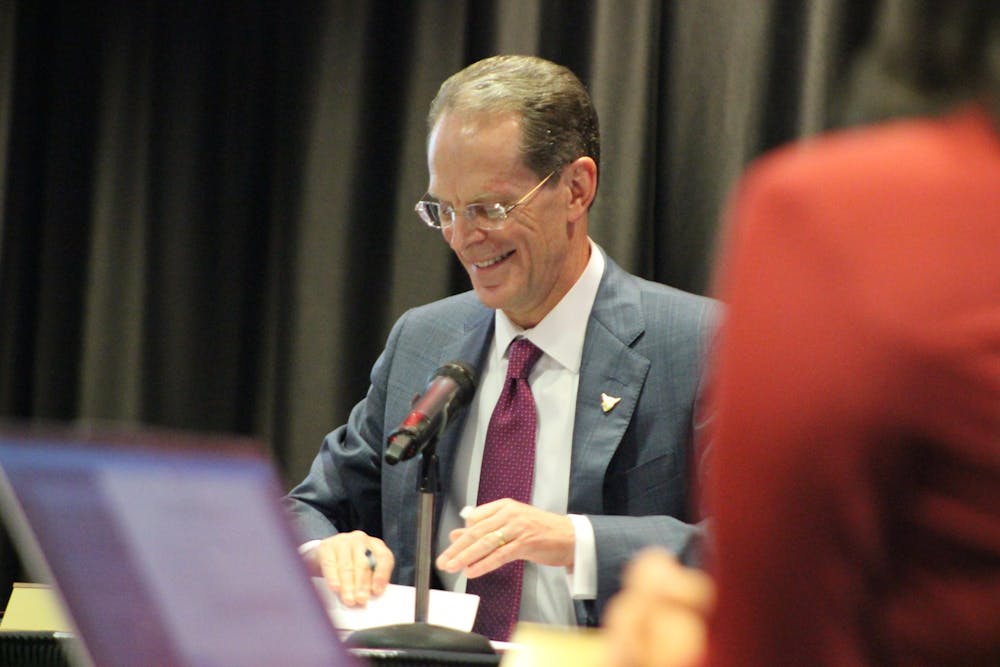Ball State’s Board of Trustees approved the Extraordinary Temporary Paid Leave Plan at its virtual meeting Friday to prevent university employees from being adversely affected economically by the impact of COVID-19.
Under this plan, if an employee is unable to work because of a COVID-19 related reason, President Geoffrey Mearns said the employee will receive regular full pay through the remainder of this fiscal year — which ends June 30 — or through the end of the employees regular employment period, whichever comes first.
The affected employees can use this “extraordinary" paid leave option and won’t have to use their existing paid leave options in order to deal and manage with these absences, Mearns said.
RELATED: Ball State president issues new guidelines for university employees
The structure of the plan is initially targeted to those university employees who are unable to work remotely and presently not deemed essential. He said currently, there are approximately 100 employees that fall in this category.
Mearns said the plan recognizes the “dynamic situation” of the COVID-19 pandemic and would address those currently working remotely and future changes to the essential personnel on campus, in case they fall ill or need to take care of a family member.
“The plan provides the appropriate flexibility to allow us to adjust to the changing circumstances,” Mearns said. “If we know anything that is a constant about this crisis, it’s that it constantly requires us to change and adapt.”
The pandemic, he said, will not affect their expected compensation and employees will receive nothing less, but also nothing more to increase the university’s budgeted expenses.
“We believe that we should provide not just this compensation, but this reassurance during this time of uncertainty and anxiety,” he said.
The plan also creates a donated paid leave bank, Mearns said. After June 30, an employee will be able to draw paid leave from this bank to cover COVID-19 related absences.
This bank will be initially funded through commitments from Mearns and the university’s vice presidents and academic deans. Once the necessary policies and procedures to administer this bank are finalized, other university employees with available leave will be able to donate to the bank to support their colleagues.
Mearns said he hopes this plan “will relieve one source of stress in these challenging times.”
“It’s too early, I think, for us to determine whether we got every one of these difficult decisions correct,” Mearns said. “Time will be the judge of whether we did, but I’m certain … throughout this crisis we have tried to do our best in making the right decision and on this one, I’m confident that what we are proposing is the right thing for us to do.
Apart from the COVID-19 response, the board approved the scope and budget of the $59.9 million renovation and partial demolition of the Cooper Science Complex.
It also reappointed Mark Ervin to a new four-year term on the Muncie Community Schools board. According to a Ball State press release, Ervin is an attorney for the local firm Beasley & Gilkison.





